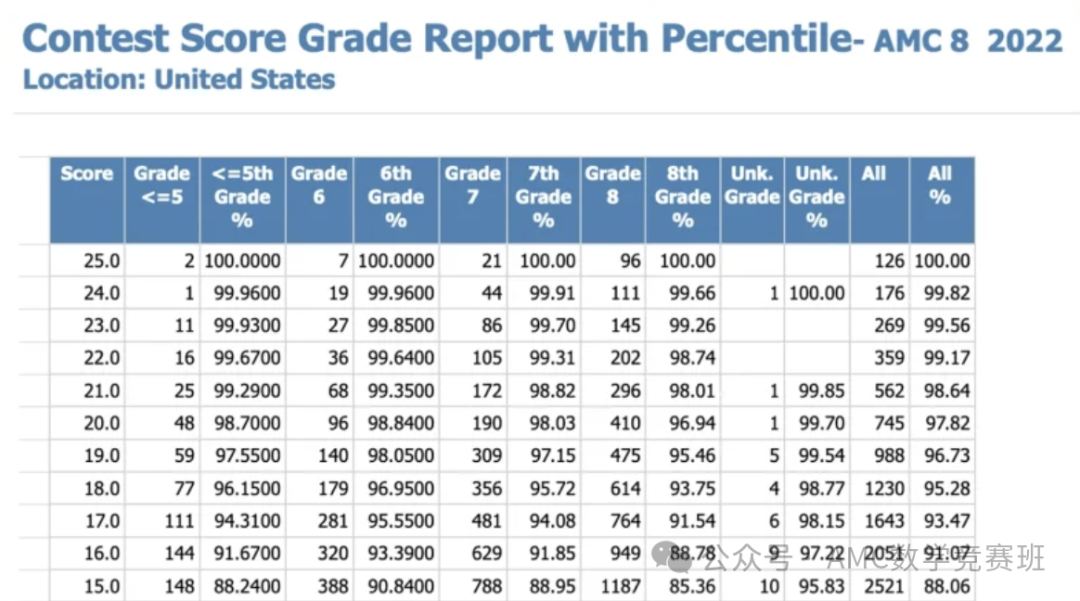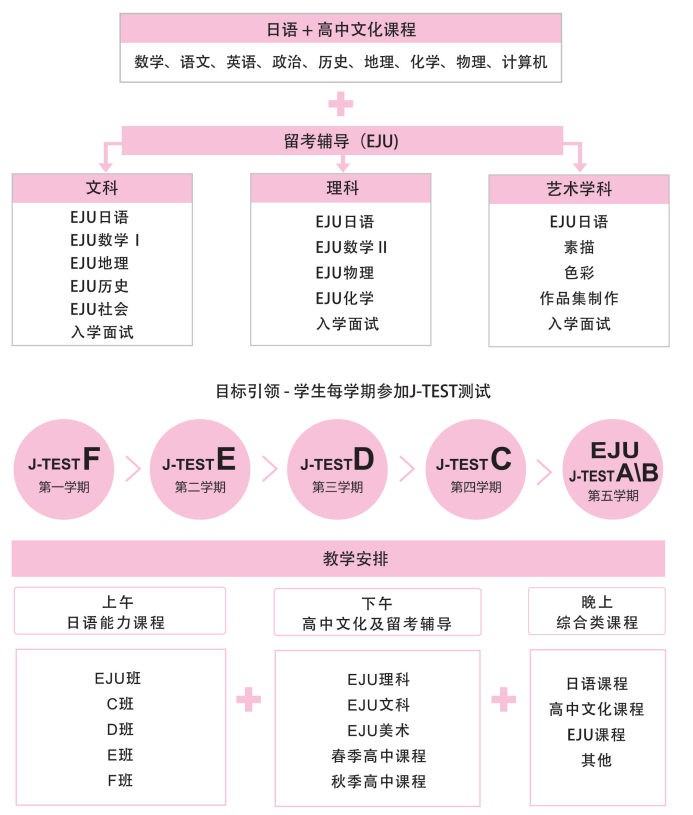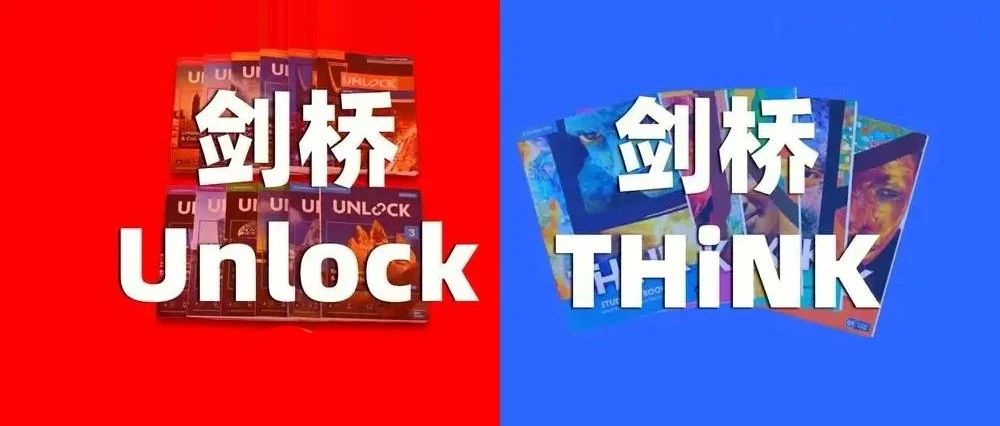自从我们新推出了
小学组的演讲赛制——「经典演说」
许多准备尝试演讲的同学都很感兴趣
我们详细介绍了规则
也回答了许多同学和家长的问题
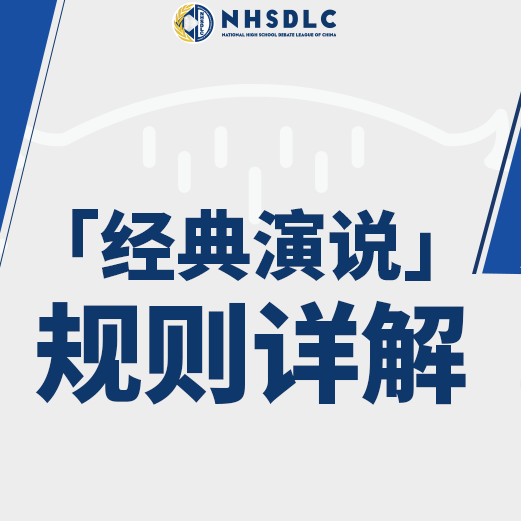
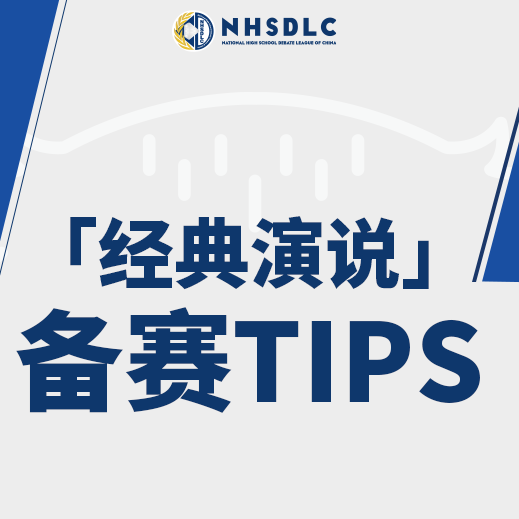
可是,从「选择一篇演讲原文」到「将它优化成可比赛的版本」究竟需要几步呢?当找到一篇心仪的、符合赛制要求的演讲稿到底该如何处理呢?
本篇将以两篇非常著名的演讲稿
《My Education, My Future》
by Barack Obama
《Stay Hungry, Stay Foolish》
by Steve Jobs
为例
带大家一起将稿件优化成为可参赛版本
更直观地感受Declamation赛制!
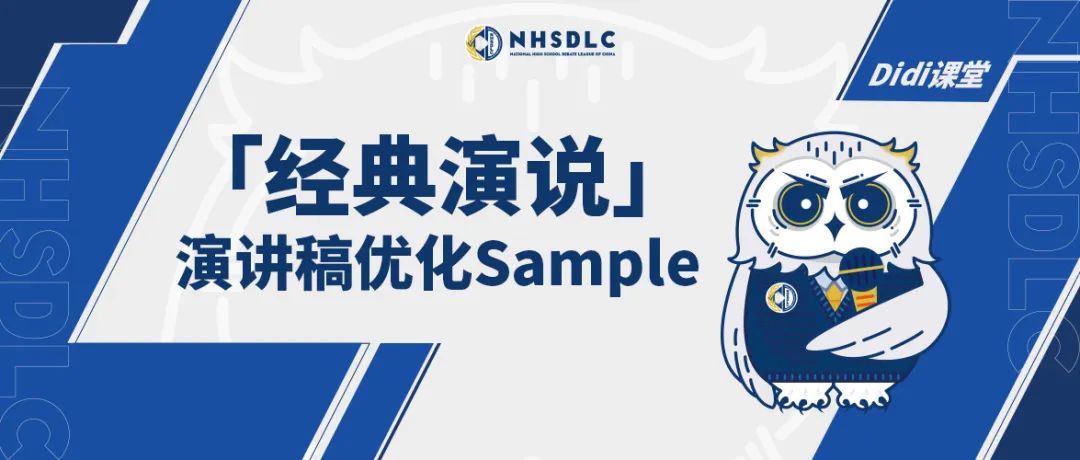
《 My Education, My Future 》
by Barack Obama
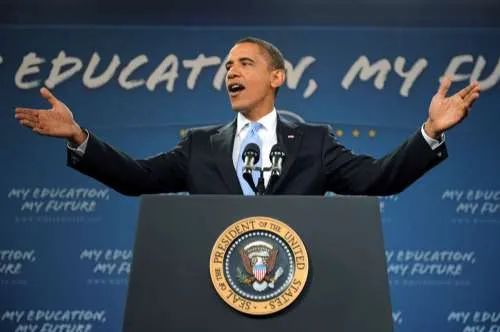

Hello, everybody! Thank you.Thank you. Thank you, everybody. All right, everybody go ahead and have a seat.How is everybody doing today? (Applause.) How about Tim Spicer? (Applause.) I am here with students at Wakefield High School in Arlington Virginia. And we’ve got students tuning in from all across America,from kindergarten through 12th grade. And I am just so glad that all could join us today. And I want to thank Wakefield for being such an outstanding host. Give yourselves a big round of applause.(Applause.)
I know that for many of you, today is the first day of school. And for those of you in kindergarten, or starting middle or high school, it’s your first day in a new school, so it’s understandable if you’re a little nervous. I imagine there are some seniors out there who are feeling pretty good right now -- (applause) -- with just one more year to go. And no matter what grade you’re in, some of you are probably wishing it were still summer and you could’ve stayed in bed just a little bit longer this morning.
I know that feeling. When I was young, my family lived overseas. I lived in Indonesia for a few years. And my mother, she didn’t have the money to send me where all the American kids went to school, but she thought it was important for me to keep up with an American education. So she decided to teach me extra lessons herself, Monday through Friday. But because she had to go to work, the only time she could do it was at 4:30 in the morning.
Now, as you might imagine, I wasn’t too happy about getting up that early. And a lot of times, I’d fall asleep right there at the kitchen table. But whenever I’d complain, my mother would just give me one of those looks and she’d say, “This is no picnic for me either, buster.”(Laughter.)
So I know that some of you are still adjusting to being back at school. But I’m here today because I have something important to discuss with you. I’m here because I want to talk with you about your education and what’s expected of all of you in this new school year.
Now, I’ve given a lot of speeches about education. And I’ve talked about responsibility a lot.
I’ve talked about teachers’ responsibility for inspiring students and pushing you to learn.
I’ve talked about your parents’ responsibility for making sure you stay on track, and you get your homework done, and don’t spend every waking hour in front of the TV or with the X box.
I’ve talked a lot about your government’s responsibility for setting high standards, and supporting teachers and principals, and turning around schools that aren’t working, where students aren’t getting the opportunities that they deserve.
But at the end of the day, we can have the most dedicated teachers, the most supportive parents, the best schools in the world -- and none of it will make a difference, none of it will matter unless all of you fulfill your responsibilities, unless you show up to those schools, unless you pay attention to those teachers, unless you listen to your parents and grandparents and other adults and put in the hard work it takes to succeed.That’s what I want to focus on today: the responsibility each of you has for your education.
I want to start with the responsibility you have to yourself.Every single one of you has something that you’re good at. Every single one of you has something to offer. And you have a responsibility to yourself to discover what that is. That’s the opportunity an education can provide.
Maybe you could be a great writer -- maybe even good enough to write a book or articles in a newspaper -- but you might not know it until you write that English paper -- that English class paper that’s assigned to you. Maybe you could be an innovator or an inventor -- maybe even good enough to come up with the next iPhone or the new medicine or vaccine -- but you might not know it until you do your project for your science class. Maybe you could be a mayor or a senator or a Supreme Court justice -- but you might not know that until you join student government or the debate team.
And no matter what you want to do with your life, I guarantee that you’ll need an education to do it. You want to be a doctor, or a teacher, or a police officer? You want to be a nurse or an architect, a lawyer or a member of our military? You’re going to need a good education for every single one of those careers. You cannot drop out of school and just drop into a good job. You’ve got to train for it and work for it and learn for it.
And this isn’t just important for your own life and your own future. What you make of your education will decide nothing less than the future of this country. The future of America depends on you. What you’re learning in school today will determine whether we as a nation can meet our greatest challenges in the future.
You’ll need the knowledge and problem-solving skills you learn in science and math to cure diseases like cancer and AIDS, and to develop new energy technologies and protect our environment. You’ll need the insights and critical-thinking skills you gain in history and social studies to fight poverty and homelessness, crime and discrimination, and make our nation more fair and more free. You’ll need the creativity and ingenuity you develop in all your classes to build new companies that will create new jobs and boost our economy.
We need every single one of you to develop your talents and your skills and your intellect so you can help us old folks solve our most difficult problems. If you don’t do that-- if you quit on school -- you’re not just quitting on yourself, you’re quitting on your country.
Now, I know it’s not always easy to do well in school. I know a lot of you have challenges in your lives right now that can make it hard to focus on your schoolwork.
I get it. I know what it’s like. My father left my family when I was two years old, and I was raised by a single mom who had to work and who struggled at times to pay the bills and wasn’t always able to give us the things that other kids had. There were times when I missed having a father in my life. There were times when I was lonely and I felt like I didn’t fit in.
So I wasn’t always as focused as I should have been on school, and I did some things I’m not proud of, and I got in more trouble than I should have. And my life could have easily taken a turn for the worse.
But I was -- I was lucky. I got a lot of second chances, and I had the opportunity to go to college and law school and follow my dreams. My wife, our First Lady Michelle Obama, she has a similar story. Neither of her parents had gone to college, and they didn’t have a lot of money. But they worked hard, and she worked hard, so that she could go to the best schools in this country.
Some of you might not have those advantages. Maybe you don’t have adults in your life who give you the support that you need. Maybe someone in your family has lost their job and there’s not enough money to go around.Maybe you live in a neighborhood where you don’t feel safe, or have friends who are pressuring you to do things you know aren’t right.
But at the end of the day, the circumstances of your life --what you look like, where you come from, how much money you have, what you’ve got going on at home -- none of that is an excuse for neglecting your homework or having a bad attitude in school. That’s no excuse for talking back to your teacher, or cutting class, or dropping out of school. There is no excuse for not trying.
Where you are right now doesn’t have to determine where you’ll end up. No one’s written your destiny for you, because here in America,you write your own destiny. You make your own future.
That’s what young people like you are doing every day, all across America.
Young people like Jazmin Perez,from Roma,Texas.Jazmin didn’t speak English when she first started school.Neither of her parents had gone to college.But she worked hard,earned good grades,and got a scholarship to Brown University--is now in graduate school,studying public health,on her way to becoming Dr.Jazmin Perez.
I’m thinking about Andoni Schultz,from Los Altos,California,who’s fought brain cancer since he was three.He’s had to endure all sorts of treatments and surgeries,one of which affected his memory,so it took him much longer--hundreds of extra hours--to do his schoolwork.But he never fell behind.He’s headed to college this fall.
And then there’s Shantell Steve,from my hometown of Chicago,Illinois.Even when bouncing from foster home to foster home in the toughest neighborhoods in the city,she managed to get a job at a local health care center,start a program to keep young people out of gangs,and she’s on track to graduate high school with honors and go on to college.
And Jazmin, Andoni,and Shantell aren’t any different from any of you.They face challenges in their lives just like you do.In some cases they’ve got it a lot worse off than many of you.But they refused to give up.They chose to take responsibility for their lives,for their education,and set goals for themselves.And I expect all of you to do the same.
That’s why today I’m calling on each of you to set your own goals for your education--and do everything you can to meet them.Your goal can be something as simple as doing all your homework,paying attention in class,or spending some time each day reading a book.Maybe you’ll decide to get involved in an extracurricular activity,or volunteer in your community.Maybe you’ll decide to stand up for kids who are being teased or bullied because of who they are or how they look,because you believe,like I do,that all young people deserve a safe environment to study and learn.Maybe you’ll decide to take better care of yourself so you can be more ready to learn.And along those lines,by the way,I hope all of you are washing your hands a lot,and that you stay home from school when you don’t feel well,so we can keep people from getting the flu this fall and winter.
But whatever you resolve to do,I want you to commit to it.I want you to really work at it.
I know that sometimes you get that sense from TV that you can be rich and successful without any hard work--that your ticket to success is through rapping or basketball or being a reality TV star.Chances are you’re not going to be any of those things.
The truth is,being successful is hard.You won’t love every subject that you study.You won’t click with every teacher that you have.Not every homework assignment will seem completely relevant to your life right at this minute.And you won’t necessarily succeed at everything the first time you try.
That’s okay.Some of the most successful people in the world are the ones who’ve had the most failures.J.K.Rowling’s--who wrote Harry Potter--her first Harry Potter book was rejected 12 times before it was finally published.Michael Jordan was cut from his high school basketball team.He lost hundreds of games and missed thousands of shots during his career.But he once said,“I have failed over and over and over again in my life.And that’s why I succeed.”
These people succeeded because they understood that you can’t let your failures define you--you have to let your failures teach you.You have to let them show you what to do differently the next time.So if you get into trouble,that doesn’t mean you’re a troublemaker,it means you need to try harder to act right.If you get a bad grade,that doesn’t mean you’re stupid,it just means you need to spend more time studying.
No one’s born being good at all things.You become good at things through hard work.You’re not a varsity athlete the first time you play a new sport.You don’t hit every note the first time you sing a song.You’ve got to practice.The same principle applies to your schoolwork.You might have to do a math problem a few times before you get it right.You might have to read something a few times before you understand it.You definitely have to do a few drafts of a paper before it’s good enough to hand in.
Don’t be afraid to ask questions.Don’t be afraid to ask for help when you need it.I do that every day.Asking for help isn’t a sign of weakness,it’s a sign of strength because it shows you have the courage to admit when you don’t know something,and that then allows you to learn something new.So find an adult that you trust--a parent,a grandparent or teacher,a coach or a counselor--and ask them to help you stay on track to meet your goals.
And even when you’re struggling,even when you’re discouraged,and you feel like other people have given up on you,don’t ever give up on yourself,because when you give up on yourself,you give up on your country.
The story of America isn’t about people who quit when things got tough.It’s about people who kept going,who tried harder,who loved their country too much to do anything less than their best.
It’s the story of students who sat where you sit 250 years ago,and went on to wage a revolution and they founded this nation.Young people.Students who sat where you sit 75 years ago who overcame a Depression and won a world war;who fought for civil rights and put a man on the moon.Students who sat where you sit 20 years ago who founded Google and Twitter and Facebook and changed the way we communicate with each other.
So today,I want to ask all of you,what’s your contribution going to be?What problems are you going to solve?What discoveries will you make?What will a President who comes here in 20 or 50 or 100 years say about what all of you did for this country?
Now,your families,your teachers,and I are doing everything we can to make sure you have the education you need to answer these questions.I’m working hard to fix up your classrooms and get you the books and the equipment and the computers you need to learn.But you’ve got to do your part,too.So I expect all of you to get serious this year.I expect you to put your best effort into everything you do.I expect great things from each of you.So don’t let us down.Don’t let your family down or your country down.Most of all,don’t let yourself down.Make us all proud.
Thank you very much,everybody.God bless you.God bless America.Thank you.(Applause.)
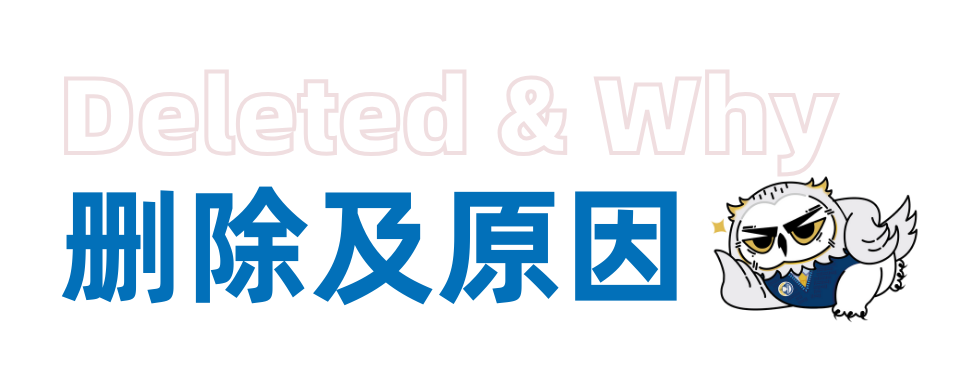
1. Greetings(~300 words, e.g., “Hello, everybody!”): Cut to meet with time limit; U.S. school context (Wakefield) irrelevant to Chinese students.
2. Anecdote(~200 words, e.g., 4:30 a.m. lessons): Removed as secondary to core theme (education’s role); less relatable, adds memorization load.
3. Stakeholder Roles(~300 words, e.g., teachers, parents): Excluded to focus on student responsibility, more motivating for Chinese students.
4. Specific Examples(~600 words, e.g., Jazmin, Andoni): Cut for simplicity; U.S.-centric stories need explanation, saving ~2 minutes.
5. Motivational Stories(~1000 words, e.g., Rowling, Jordan): Removed as Western examples are less relatable; complex societal goals (e.g., poverty) suit older audiences.
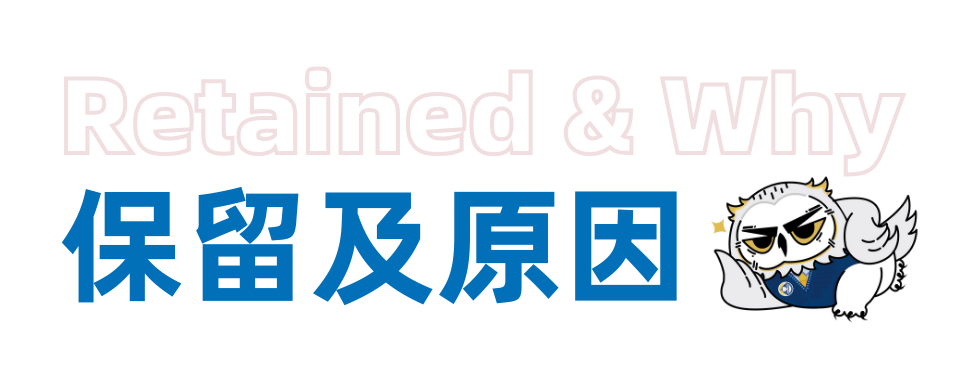
1. Core Message(~100 words, e.g., “Every single one of you has something you're good at”): Kept for direct focus on education’s role, simple and inspiring.
2. Career Examples(~30 words, e.g., “writer,” “innovator”): Retained as universal, aligning with academic goals, easy to deliver.
3. Closing(~20 words, e.g., “Make yourself proud”): Kept to emphasize effort, resonates with common values, strong conclusion.

Tease
“Every single one of you has something you're good at. Every single one of you has something to offer. And you have a responsibility to yourself to discover what that is. That's the opportunity an education can provide.”
Introduction
Good morning, everyone! Today, I’m excited to share a powerful speech called"My Education, My Future" by President Barack Obama. This speech was first given to students across America in 2009, and its message still shines bright today!
President Obama believes that every child has hidden superpowers—maybe you’re a future scientist, a brilliant artist, or even a world-changing inventor! But how do you discover these powers? That’s where education comes in! School isn’t just about books and tests—it’s a treasure hunt to find your talents and turn them into something amazing.
By the end, you’ll see that every math problem you solve, every story you write, and every experiment you try is a step toward your incredible future. So get ready—this speech isn’t just words, it’s a MAP to your greatness!
Revised version of the original speech
Every single one of you has something you're good at. Every single one of you has something to offer. And you have a responsibility to yourself to discover what that is. That's the opportunity an education can provide.
Maybe you could be a good writer — maybe even good enough to write a book or articles for a newspaper — but you might not know it until you write that English paper. Maybe you could be an innovator or an inventor — maybe even good enough to come up with the next iPhone or a new medicine or vaccine — but you might not know it until you do your project for science class. Maybe you could be a mayor or a senator or a Supreme Court justice — but you might not know it until you join student government or debate team.
Andno matter what you want to do with your life — I guarantee that you'll need an education to do it.You want to be a doctor, a teacher, or a police officer? You'll need a good education for that. You want to be a nurse or an architect, a lawyer or a member of our military? You'll need a good education for that.
The future of our country depends on you. So don't let yourself down. Don't let your family down or your country down. Most importantly, don't let yourself down. Make yourself proud.
《Stay Hungry, Stay Foolish》
by Steve Jobs

I am honored to be with you today at your commencement from one of the finest universities in the world. Truth be told, I never graduated from college, and this is the closest I've ever gotten to a college graduation. Today I want to tell you three stories from my life. That's it. No big deal. Just three stories.
[1] The first story is about connecting the dots.
I dropped out of Reed College after the first 6 months, but then stayed around as a drop-in for another 18 months or so before I really quit. So why did I drop out?
It started before I was born. My biological mother was a young, unwed college graduate student, and she decided to put me up for adoption. She felt very strongly that I should be adopted by college graduates, so everything was all set for me to be adopted at birth by a lawyer and his wife. Except that when I popped out they decided at the last minute that they really wanted a girl.
So my parents, who were on a waiting list, got a call in the middle of the night asking: "We have an unexpected baby boy; do you want him?" They said: "Of course." My biological mother later found out that my mother had never graduated from college and that my father had never graduated from high school. She refused to sign the final adoption papers. She only relented a few months later when my parents promised that I would go to college. This was a start in my life.
And 17 years later I did go to college. But I naively chose a college that was almost as expensive as Stanford, and all of my working-class parents' savings were being spent on my college tuition. After six months, I couldn't see the value in it. I had no idea what I wanted to do with my life and no idea how college was going to help me figure it out.
And here I was spending all of the money my parents had saved their entire life. So I decided to drop out and trust that it would all work out OK. It was pretty scary at the time, but looking back it was one of the best decisions I ever made. The minute I dropped out I could stop taking the required classes that didn't interest me, and begin dropping in on the ones that looked far more interesting.
It wasn't all romantic. I didn't have a dorm room, so I slept on the floor in friends' rooms, I returned coke bottles for the 5¢ deposits to buy food with, and I would walk the 7 miles across town every Sunday night to get one good meal a week at the Hare Krishna temple. I loved it. And much of what I stumbled into by following my curiosity and intuition turned out to be priceless later on. Let me give you one example:
Reed College at that time offered perhaps the best calligraphy instruction in the country. Throughout the campus every poster, every label on every drawer, was beautifully hand calligraphed. Because I had dropped out and didn't have to take the normal classes, I decided to take a calligraphy class to learn how to do this.
I learned about serif and san serif typefaces, about varying the amount of space between different letter combinations, about what makes great typography great. It was beautiful, historical, artistically subtle in a way that science can't capture, and I found it fascinating.
None of this had even a hope of any practical application in my life. But ten years later, when we were designing the first Macintosh computer, it all came back to me. And we designed it all into the Mac. It was the first computer with beautiful typography. If I had never dropped in on that single course in college, the Mac would have never had multiple typefaces or proportionally spaced fonts.
And since Windows just copied the Mac, its likely that no personal computer would have them. If I had never dropped out, I would have never dropped in on this calligraphy class, and personal computers might not have the wonderful typography that they do. Of course it was impossible to connect the dots looking forward when I was in college. But it was very, very clear looking backwards ten years later.
Again, you can't connect the dots looking forward; you can only connect them looking backwards. So you have to trust that the dots will somehow connect in your future. You have to trust in something - your gut, destiny, life, karma, whatever. This approach has never let me down, and it has made all the difference in my life.
[2] My second story is about love and loss.
I was lucky – I found what I loved to do early in life. Woz and I started Apple in my parents garage when I was 20. We worked hard, and in 10 years Apple had grown from just the two of us in a garage into a billion company with over 4000 employees. We had just released our finest creation - the Macintosh - a year earlier, and I had just turned 30.
And then I got fired. How can you get fired from a company you started? Well, as Apple grew we hired someone who I thought was very talented to run the company with me, and for the first year or so things went well. But then our visions of the future began to diverge and eventually we had a falling out. When we did, our Board of Directors sided with him. So at 30 I was out. And very publicly out. What had been the focus of my entire adult life was gone, and it was devastating.
I really didn't know what to do for a few months. I felt that I had let the previous generation of entrepreneurs down - that I had dropped the baton as it was being passed to me. I met with David Packard and Bob Noyce and tried to apologize for screwing up so badly.
I was a very public failure, and I even thought about running away from the valley. But something slowly began to dawn on me – I still loved what I did. The turn of events at Apple had not changed that one bit. I had been rejected, but I was still in love. And so I decided to start over.
I didn't see it then, but it turned out that getting fired from Apple was the best thing that could have ever happened to me. The heaviness of being successful was replaced by the lightness of being a beginner again, less sure about everything. It freed me to enter one of the most creative periods of my life.
During the next five years, I started a company named NeXT, another company named Pixar, and fell in love with an amazing woman who would become my wife. Pixar went on to create the worlds first computer animated feature film, Toy Story, and is now the most successful animation studio in the world.
In a remarkable turn of events, Apple bought NeXT, I returned to Apple, and the technology we developed at NeXT is at the heart of Apple's current renaissance. And Laurene and I have a wonderful family together.
I'm pretty sure none of this would have happened if I hadn't been fired from Apple. It was awful tasting medicine, but I guess the patient needed it. Sometimes life hits you in the head with a brick. Don't lose faith. I'm convinced that the only thing that kept me going was that I loved what I did. You've got to find what you love. And that is as true for your work as it is for your lovers. Your work is going to fill a large part of your life, and the only way to be truly satisfied is to do what you believe is great work. And the only way to do great work is to love what you do. If you haven't found it yet, keep looking. Don't settle. As with all matters of the heart, you'll know when you find it. And, like any great relationship, it just gets better and better as the years roll on. So keep looking until you find it. Don't settle.
[3] My third story is about death.
When I was 17, I read a quote that went something like: "If you live each day as if it was your last, someday you'll most certainly be right." It made an impression on me, and since then, for the past 33 years, I have looked in the mirror every morning and asked myself: "If today were the last day of my life, would I want to do what I am about to do today?" And whenever the answer has been "No" for too many days in a row, I know I need to change something.
Remembering that I'll be dead soon is the most important tool I've ever encountered to help me make the big choices in life. Because almost everything – all external expectations, all pride, all fear of embarrassment or failure - these things just fall away in the face of death, leaving only what is truly important. Remembering that you are going to die is the best way I know to avoid the trap of thinking you have something to lose. You are already naked. There is no reason not to follow your heart.
About a year ago I was diagnosed with cancer. I had a scan at 7:30 in the morning, and it clearly showed a tumor on my pancreas. I didn't even know what a pancreas was. The doctors told me this was almost certainly a type of cancer that is incurable, and that I should expect to live no longer than three to six months. My doctor advised me to go home and get my affairs in order, which is doctor's code for prepare to die. It means to try to tell your kids everything you thought you'd have the next 10 years to tell them in just a few months. It means to make sure everything is buttoned up so that it will be as easy as possible for your family. It means to say your goodbyes.
I lived with that diagnosis all day. Later that evening I had a biopsy, where they stuck an endoscope down my throat, through my stomach and into my intestines, put a needle into my pancreas and got a few cells from the tumor. I was sedated, but my wife, who was there, told me that when they viewed the cells under a microscope the doctors started crying because it turned out to be a very rare form of pancreatic cancer that is curable with surgery. I had the surgery and I'm fine now.
This was the closest I've been to facing death, and I hope its the closest I get for a few more decades. Having lived through it, I can now say this to you with a bit more certainty than when death was a useful but purely intellectual concept:
No one wants to die. Even people who want to go to heaven don't want to die to get there. And yet death is the destination we all share. No one has ever escaped it. And that is as it should be, because Death is very likely the single best invention of Life. It is Life's change agent. It clears out the old to make way for the new. Right now the new is you, but someday not too long from now, you will gradually become the old and be cleared away. Sorry to be so dramatic, but it is quite true.
Your time is limited, so don't waste it living someone else's life. Don't be trapped by dogma - which is living with the results of other people's thinking. Don't let the noise of other's opinions drown out your own inner voice. And most important, have the courage to follow your heart and intuition. They somehow already know what you truly want to become. Everything else is secondary.
When I was young, there was an amazing publication called The Whole Earth Catalog, which was one of the bibles of my generation. It was created by a fellow named Stewart Brand not far from here in Menlo Park, and he brought it to life with his poetic touch. This was in the late 1960's, before personal computers and desktop publishing, so it was all made with typewriters, scissors, and polaroid cameras. It was sort of like Google in paperback form, 35 years before Google came along: it was idealistic, and overflowing with neat tools and great notions.
Stewart and his team put out several issues of The Whole Earth Catalog, and then when it had run its course, they put out a final issue. It was the mid-1970s, and I was your age. On the back cover of their final issue was a photograph of an early morning country road, the kind you might find yourself hitchhiking on if you were so adventurous. Beneath it were the words: "Stay Hungry. Stay Foolish." It was their farewell message as they signed off. Stay Hungry. Stay Foolish. And I have always wished that for myself. And now, as you graduate to begin anew, I wish that for you.
Stay Hungry. Stay Foolish.
Thank you all very much.
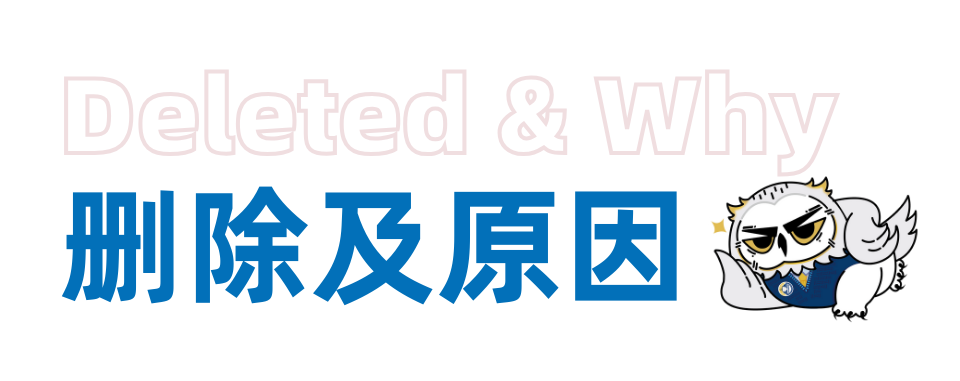
1. Context(~100 words, e.g., Stanford commencement): Cut to save time for 3:30 limit; U.S.-specific setting less relevant.
2. Detailed “Dots” Story(~350 words, e.g., adoption, calligraphy specifics): Removed for complexity; technical details may be confusing.
3. Extended “Love and Loss”(~350 words, e.g., NeXT, personal life): Cut as U.S.-centric; focuses on perseverance.
4. Detailed “Death” Story(~350 words, e.g., cancer, Whole Earth Catalog): Excluded as heavy, obscure.
5. Anecdotes(~700 words, e.g., entrepreneurs): Removed as secondary, complex.
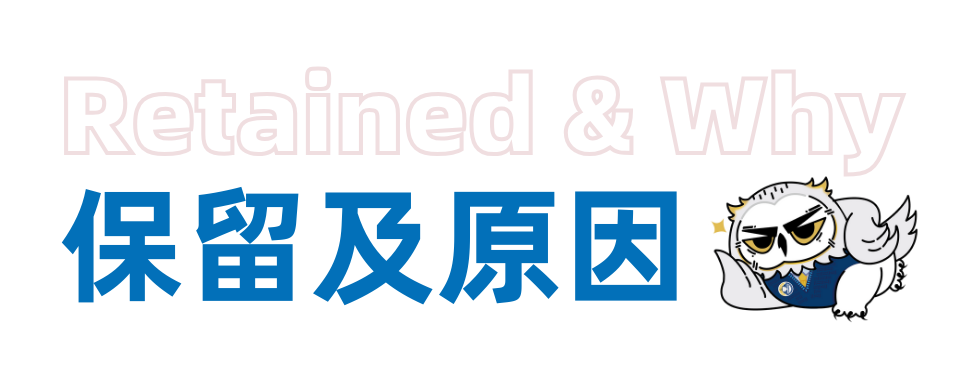
1. Condensed Stories(~150 words, e.g., calligraphy, firing, “live each day”): Kept to capture trust, perseverance, time’s value; simple narrative engages students.
2. Closing Mantra(~10 words, e.g., “Stay Hungry, Stay Foolish”): Retained as iconic, encouraging learning, made a impactful delivery.

Tease
Stay Hungry, Stay Foolish. Keep being eager to learn and not afraid to try new things.
Introduction
Hi, everyone! Today, I’m here to share a classic speech called“Stay Hungry, Stay Foolish” by Steve Jobs.
Steve Jobs, the co - founder of Apple, is a legend in the tech world. In this speech, he shares three life - changing stories from his own journey. The themes revolve around the importance of following one's passion, learning from failures, and making the most of limited time.
Through these stories,Jobs shows us how to connect the dots in our lives, how setbacks can lead to new beginnings, and how to live a life true to ourselves.We will learn the value of perseverance in the face of difficulties and the courage to pursue their dreams. By embracing the spirit of “Stay Hungry, Stay Foolish”, we can be more open - minded, eager to learn, and unafraid of taking risks. This speech not only provides inspiration but also practical wisdom that can help us make better decisions in our own lives, whether in our studies, career choices, or personal growth.
Revised version of the original speech
Today, I want to tell you three short stories from my life.
The first story is about connecting the dots. I dropped out of college after the first 6 months, but then stayed around as a drop - in for another 18 months or so before I really quit. Why? My parents were working - class. All their savings were being spent on my very expensive college tuition. And I didn't see the value in it at that time. But after dropping out, I could take the classes I was really interested in. For example, I took a calligraphy class. I learned about beautiful typefaces. At that time, I never thought it would be useful. But ten years later, when we designed the first Macintosh computer, all that knowledge came back. The Mac became the first computer with beautiful typography. You see, you can't connect the dots looking forward; you can only connect them looking backwards. So trust that the things you do now will connect in your future.
The second story is about love and loss. I was lucky. I found what I loved to do early in life. I started Apple in my parents' garage when I was 20. We worked hard, and Apple grew into a big company. But then, at 30, I got fired from the company I started! It was devastating. But I realized I still loved what I did. So I started over. I founded NeXT and Pixar. Pixar made the world - famous movie "Toy Story". Later, Apple bought NeXT, and I returned to Apple. If I hadn't been fired, these might never have happened. Sometimes life hits you hard, but don't lose faith. Keep loving what you do.
The third story is about death. When I was 17, I read a quote: "If you live each day as if it was your last, someday you'll most certainly be right." Since then, every morning I've looked in the mirror and asked myself: "If today were the last day of my life, would I want to do what I am about to do today?" Your time is limited, so don't waste it living someone else's life. Don't let others' opinions drown out your own inner voice. Have the courage to follow your heart.
At the end, I want to share with you a sentence: Stay Hungry, Stay Foolish. Keep being eager to learn and not afraid to try new things. Thank you!
看了这两篇Sample
你是否对经典演说有了更新的认识?
快根据本文对原演讲稿的优化思路
自己来练习一篇吧!







